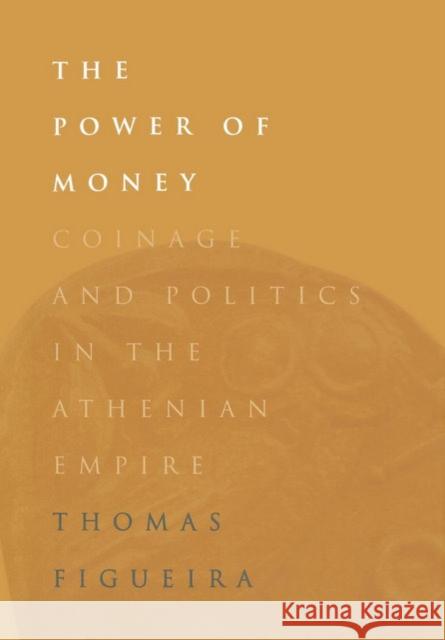The Power of Money: Coinage and Politics in the Athenian Empire » książka
The Power of Money: Coinage and Politics in the Athenian Empire
ISBN-13: 9780812234411 / Angielski / Twarda / 1998 / 648 str.
"This superb work belongs in the libraries of all universities. Essential."--Choice "The Power of Money is a brilliant and highly original piece of scholarship on a group of inscriptions about which much has been written and whose interpretation is crucial for our understanding of the way in which Athens ruled her empire."--Martin Ostwald, Swarthmore College "Thomas Figueira's work on Athenian monetary policy is not only solid, thorough, and meticulously reasoned but also new and original in its conception. It will be a basic text for all concerned with the Athenian empire and its economy well into the new century."--Mabel L. Lang, Bryn Mawr College "The Power of Money is potentially the most significant work on the Athenian Empire written in many years. . . . Quite simply, the current understanding of Athens' economic relations with her allies will have to be totally reconsidered as a result of Figueira's work."--Stanley Burstein, California State University, Los Angeles "The Power of Money is a major contribution to the scholarship of classical Greece. . . . It will be cited and used with approval in all serious future acounts of fifth-century political history. It will also occupy an important place in the scholarship on ancient coinage and economics. It is masterful scholarship all around, on both the technical and conceptual levels."--John H. Kroll, The University of Texas "A work of immense learning."--Harold B. Mattingly, American Journal of Archaeology Was Athens an imperialistic state, deserving all the reputation for exploitation that adjective can imply, or was the Athenian alliance, even at its most unequal, still characterized by a convergence of interests? The Power of Money explores monetary and metrological policy at Athens as a way of discerning the character of Athenian hegemony in midfifth-century Greece. It begins with the Athenian Coinage Decree, which, after decades of scholarly attention, still presents unresolved questions for Greek historians about content, intent, date, and effect. Was the Decree an act of commercial imperialism or simply the codification of what was already current practice? Figueira interprets the Decree as one in a series concerned with financial matters affecting the Athenian city-state and emerging from the way the collection of tribute functioned in the alliance that we call the Athenian empire. He contends that the Decree served primarily to legislate the status quo ante. Thomas Figueira is Professor of Classics and of Ancient History at Rutgers University, New Brunswick.











